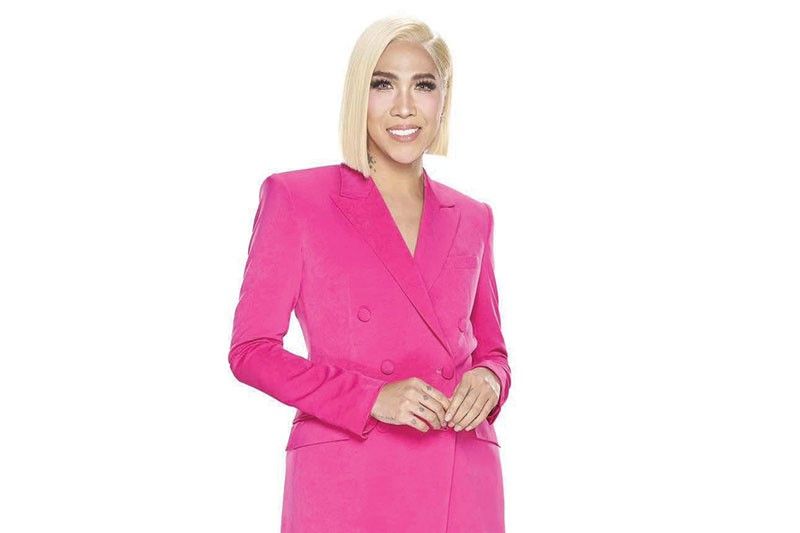September 13, 2025 – Manila, Philippines — Multi-awarded filmmaker Lav Diaz, known for his socially conscious and politically charged cinema, has made a surprising yet thought-provoking statement: he believes that Vice Ganda, one of the Philippines’ most prominent entertainers, has the potential to run for president in the upcoming 2028 national elections.
The remarks were made during an episode of “Ang Walang Kwentang Podcast”, where Diaz openly expressed his concerns about the country’s political future.
“The Nightmare Is Coming”

For Diaz, the nation stands at a critical juncture. He warned that the possibility of Sara Duterte running for the presidency looms large and poses what he described as a bleak political future.
“Seryoso ‘yon kasi napaka-bleak ng future ‘pag hindi natin mawasak ‘yung wall na ‘yon—‘yung ‘Sara Duterte wall,’ which is coming,” Diaz said in the podcast.
“The nightmare is coming. It’s only two years away so we need to act. Gamitin natin ang pop culture. Let’s use pop culture to destroy that,” he added, urging Filipinos to rethink traditional politics and instead harness the influence of cultural icons.
Why Vice Ganda?
Diaz emphasized that among contemporary figures in pop culture, Vice Ganda stands out as an icon with massive influence across generations. From hosting the long-running noontime program “It’s Showtime”, to box-office success in films, to shaping conversations on social media, Vice Ganda has cemented a unique cultural authority.
“Sino bang pinaka-icon sa pop culture ngayon? Vice Ganda. At maganda rin ang pananaw ni Vice. Gamitin natin, let’s use that,” Diaz declared.
According to him, Vice Ganda’s charisma, humor, and relatability provide a platform that could challenge entrenched political dynasties, particularly the Dutertes, should Sara Duterte pursue the presidency in 2028.
Pop Culture as a Political Weapon

Lav Diaz is no stranger to advocating for art and culture as vehicles for social change. His body of work, often marathon-length films that explore themes of history, trauma, and oppression, has long highlighted how narratives shape society.
In this case, he argues that myth-making and cultural storytelling are now central to political battles.
“Kasi ‘yun na ‘yung labanan e, mythologizing with making,” he explained, suggesting that politics in the Philippines has evolved beyond policy debates and is now intertwined with imagery, symbols, and personalities.
By putting forward Vice Ganda, Diaz highlights the possibility of weaponizing entertainment and mass influence to disrupt conventional political campaigns.
Public Reaction and Speculation

The statement quickly sparked conversations across social media platforms. Some netizens agreed with Diaz, praising Vice Ganda for being outspoken about social issues and for maintaining a strong connection with ordinary Filipinos. For them, Vice embodies the kind of empathetic leadership the nation might need.
Others, however, expressed skepticism, questioning whether a comedian and television personality could handle the complex realities of governance and diplomacy. The comparison to previous celebrity-turned-politicians, such as Joseph Estrada, drew both optimism and criticism.
Political analysts have also weighed in, noting that while Vice Ganda has not expressed any political ambitions, the idea reflects a growing disillusionment with traditional politicians. For many Filipinos, the failure of long-established leaders has left room for outsiders and cultural figures to be considered as alternatives.
The Bigger Picture
Diaz’s statement is less about Vice Ganda specifically and more about a broader strategy: the need to rethink how political influence is built and exercised. By urging the use of pop culture, he calls on Filipinos to challenge the dynasties that continue to dominate the political landscape.
Whether Vice Ganda takes the idea seriously or not, the suggestion underscores an undeniable truth: the lines between entertainment, influence, and politics in the Philippines are increasingly blurred.
What’s Next?
As of now, Vice Ganda has made no public comment regarding Diaz’s statement. Known for his wit and candid takes on social issues, Vice has often used his platform to speak about inequality, LGBTQ+ rights, and social justice—but he has never openly hinted at political aspirations.
Still, Diaz’s remarks have ignited an unusual yet compelling discussion: Could the Philippines see a television superstar vying for the highest seat of power in 2028?
For now, it remains speculation—but one thing is certain: as the 2028 elections draw closer, the search for fresh alternatives to entrenched political dynasties will only grow louder.
